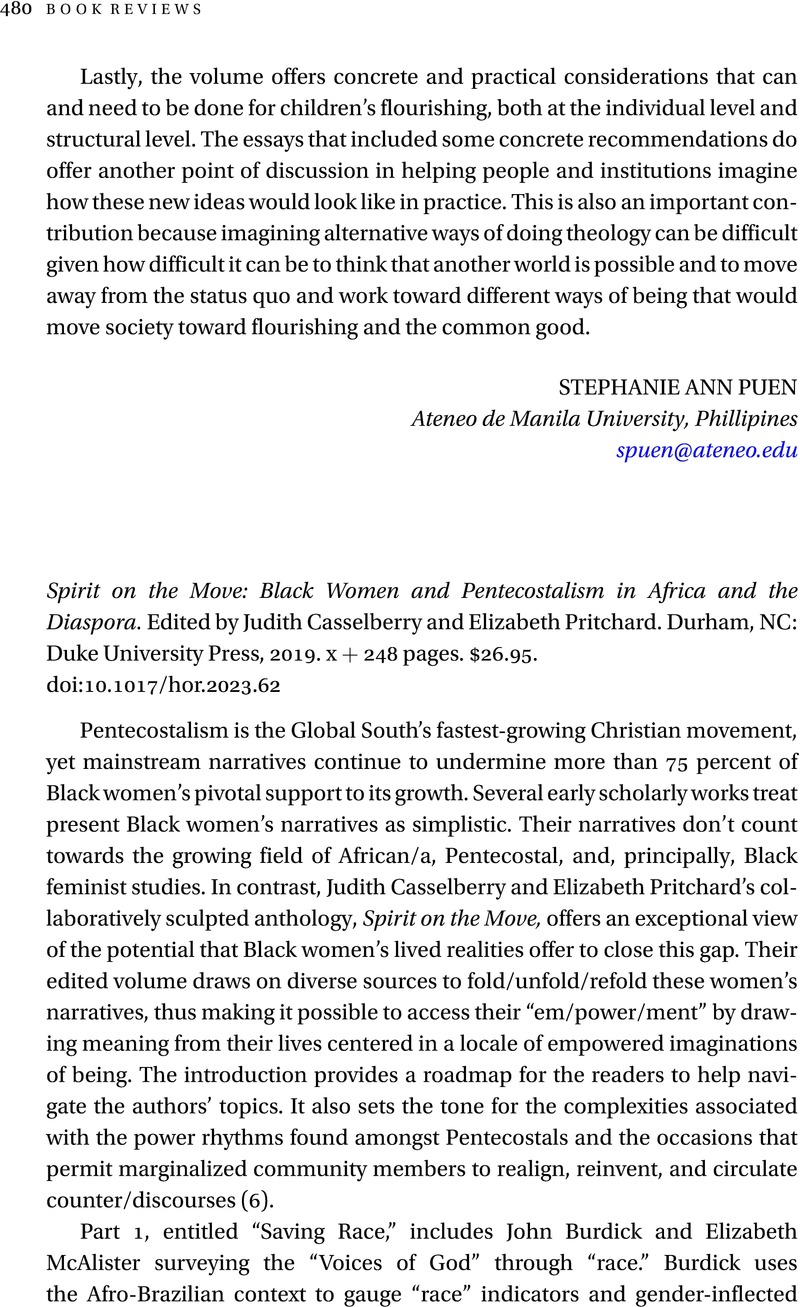No CrossRef data available.
Published online by Cambridge University Press: 08 March 2024

1 Mary Nyangweso and Jacob K. Olupona, eds., Religion in Gender-Based Violence, Immigration, and Human Rights, Routledge Studies in Religion (Oxon and New York: Routledge, 2019), xv.